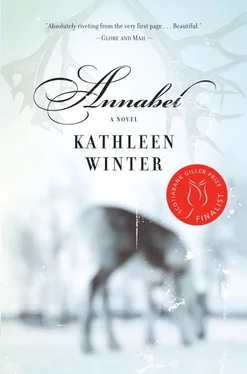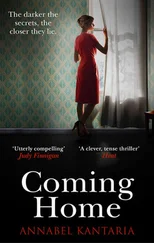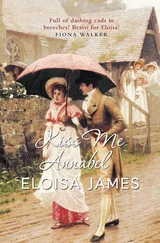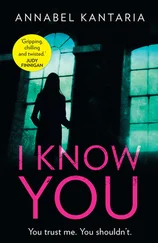The dresses came to the Hudson’s Bay store as soon as Christmas was over. Old Eunice White, who had a purple birthmark covering half her face, hung them from circular racks in the back section used to store seasonal merchandise. Every year there was something new in dresses. One year it was greens: all the dresses were shades of lime, chartreuse, forest, mint, and emerald. Another year it had been sequins sewn under layers of net so they glimmered like scales on dream fish or glitter on dragonfly wings. In ’84 the dresses had been cut on the bias, with asymmetrical hemlines that had made Wayne uneasy. This year he watched, in a way that other boys did not, to see what Eunice would wheel into the back section once she had cleared out the last of the Christmas garlands and New Year’s Eve streamers.
He knew what he would wear. Each grade twelve boy in Croydon Harbour rented a tux from sliding flats in Eunice’s back section. The only thing that changed each year for boys was the colour of the cummerbund; they had been purple the year before, a great disappointment to Brent Shiwack’s older brother and all his friends. A real pansy colour. This year they were scarlet, and you could get them in matte linen with a black stripe, which everyone wanted, or in satin. If you had a whole dress the colour and feel of the satin cummerbunds, Wayne thought, then you would have a dress worth talking about.
He tried not to let Eunice see him examining the dresses on the racks, one by one, to find the dress he would choose for himself in a perfect world. If Eunice came near him with her long pole that had a nail on it, to snag a World Famous bag or a reflective vest off the top shelf, he pretended he was looking at the fly-tying gear. One minute he was looking at gauze and lace, the next at feathers and glass beads. You could hook some of the fly-tying stuff onto the dresses and it would look pretty good.
There had been a revolution somewhere in middle America, where the heart of prom-land lay waiting for its prince, and the dresses this year were short. The girls felt cheated.
“Actually,” Donna Palliser announced in the schoolyard, “short dresses were in two years ago. It has taken them this long to reach Labrador. My mother has ordered me the latest: a lemon gown from California. It’s the exact colour of lemons in the lemon grove south of San Francisco where the designer has her summer home. It sweeps the floor. You have to wear four-inch heels if you don’t want to trip over it. Short dresses are actually from 1983.”
But Wayne liked the short dresses. Not only were they short, one in particular was restrained in its line, fabric, and colour. It had no gauze and no sequins or beads. The dress was brown and had a green satin ribbon in the hem, which could be seen only if you turned up the edge and looked. The green was a muted, shimmering green that had brown in it. The dress had a fitted bodice, and it was different too from the other dresses in that it was sleeveless, without caps, bells, or any of the shoulder details that puffed and spoiled the other dresses’ shapes. The brown dress with the hidden green hem was elegant. The cloth felt cold, and you could crumple it in your hand and hide it there, the material was so pliant.
“Are you interested in that dress, Wayne?” Eunice said, the third time he visited it. “For your date?”
“I might be.”
Eunice shook out the crumples Wayne had lovingly made it suffer. She laid down her pole and hung the dress over her wrist. “It’s a nice dress.”
“Yeah.”
“It has a hint of the twenties about it.”
Eunice’s birthmark was shaped like Africa, and it was about the size of Africa on the globe in Mr. Ollerhead’s class. Her hair was brown and white and had thin patches.
“Did you ever wear one like that?”
“I’m not that old, Wayne. I was thinking of my mother. My mother would have worn a dress something like this one when she went to dances with my father, before I was born. Only hers wouldn’t have had the satin. She wouldn’t have had the money. What’s this one?” She looked for the tag.
“A hundred and ninety-nine ninety-nine.”
“Pretty expensive. Your girlfriend could get this one,” she fingered a rose polyester dress with a lace belt, “for only one nineteen. You don’t like, it do you?”
“No.”
“The truth of the matter is, you get what you pay for. Who are you taking?”
“The person I’m taking isn’t really the one I was thinking of. For the dress.”
“Ah.” Eunice held the elegant dress against her body. “There’s someone you wish you were taking.”
Wayne was glad there were shadows in the store. He wanted the part of him that was Annabel to try the dress on. He longed to take it home and let her dance in it, just one night.
“Well, don’t go breaking the heart of the one who wants to go with you, all for the sake of the one who never will.” Eunice looked at him as if her whole life had been about that very tale. “Do you want me to put this away?”
Had Eunice seen him hide the dress the other times he had been in to see it? He had hooked it inside a winter coat on the sale rack.
“So you can tell the girl you’re thinking of to come in and look at it?”
“Not really.”
“Who are you going with? If you don’t mind my asking.”
“Gracie Watts.”
“Gracie Watts.” Eunice held out the dress and stared at it. “I can’t see Gracie Watts in this.”
Wayne couldn’t either. He could see Gracie in the rose-coloured dress with the lace, or the mint green one identical to it.
“The truth of the matter is…” Eunice was always saying that. The truth of the matter is, no-name peas are made in the same factory as Aylmer peas. The truth of the matter is, by the time fresh milk makes it up here there’s no more than two days left before it turns sour. The truth of the matter is, Quebec blueberries might be twice the size of ours but they don’t have half the flavour. Now she finished. “I can’t see this dress on anyone in your class. The girl who could wear this dress would have to have what I’d call her own style. Someone who didn’t mind not going with the crowd. Someone elegant herself. An artist, one who acts in plays. You’d have to be what they call striking to pull this dress off. On Gracie Watts it would look like she was wearing a mushroom. Not that I don’t think Gracie’s a nice girl. The truth of the matter is, she’s my grand-second-niece. She’d do well in nursing school. Too bad her father is an alcoholic. You know who would look nice in this dress? Wally Michelin. Wally Michelin could carry it off in a heartbeat. But the truth of the matter is, she already has this other one over here on layaway.” Eunice opened the cabinet behind her counter and took out an armload of red satin, glimmering in the shadows like the cummerbunds.
Wayne was not prepared for the transformation that took place among the girls on prom night. The girls, of course, had prepared for months, slathering their chests with self-tanning lotion and experimenting with curling irons, rhinestone combs, and baby’s breath. There was a dinner of stuffed chicken breast, mashed potatoes, and green beans in the gym, followed by Donna Palliser’s valedictorian speech, then the lights went down and Rodney Montague fooled around with his disco equipment for half an hour before blasting Joe Cocker and Jennifer Warnes, singing the song from which Donna Palliser had extracted this year’s prom theme: Donna and her prom committee had festooned the gym with banners that read, CLASS OF ’85: WHERE EAGLES FLY.
Gracie led him onto the floor. She placed his arms around her where she wanted them and she snaked her own hand inside his jacket and let a chilled lump slip into the pocket that had the turina superior menswear made in romania label on it. He knew it was the flask of brandy she had told him she would bring. He was surprised how papery her dress felt, how rough its stitches were, like seams in one of the meal sacks his father bought for the trapline. Her body pressed the material like the flour: solid, yet her waist was small. His own hands felt big, holding her. Gracie’s hand, after it slipped him the flask, slid under his jacket and warmed his kidneys. He felt her against his crotch. Because of her dress, with its layers of material, no one could see how close they were; he felt her heat and became aroused, which puzzled him, because he had not thought about Gracie as having to do with sex. He had come here with her because she had asked him to; everyone came to the dance, and Gracie had asked him unsentimentally in the corridor, her little face composed, in case he said no. Could you become aroused just by touching a girl, even if you felt nothing special towards her? It troubled him, but he was heated and excited just the same, and did not think of moving his body away. He could smell her perfume. The whole gym was thick with a scent like that of the sickly lilies a family had brought the boy next to him the night he had spent in hospital. Gracie moved her other hand on his chest and played with the flowers in his boutonniere. His heart beat under the flowers and she found it and put her hand on it; she knew exactly where to touch him. Her hand on his heart almost made him cry. He had not realized how much his heart had waited for someone to touch it, physically, with a hand as strong as Gracie’s. It was as if someone had given her a booklet on how to melt a boy. He had been worried about the night: what to do, how to dance. With Gracie, all he had to do was stand there and move naturally to the music, and she carried the whole problem of how to hold each other and what to talk about.
Читать дальше












